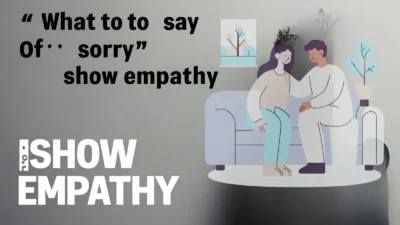Filing a police statement can be intimidating—especially if you’re in shock, scared, or just trying to help. But what you say matters. A lot. In fact, saying the wrong thing could put you in legal trouble, confuse the case, or even make you look suspicious. That’s why it’s important to know what not to say in a police statement.
Even if you’re trying to be honest, clear, or helpful, some phrases or admissions can backfire. And once it’s written or recorded, it’s on record—sometimes forever. This guide will walk you through what to avoid saying, and what to do instead.
Whether you’re a witness, a victim, or just someone giving information, here are the key things you should never say in a police statement—and why.
1. Don’t Guess or Assume Anything
Police statements should be based on facts you know, not what you think might have happened. Guessing or assuming details can hurt your credibility and mislead the investigation.
Example:
Instead of: “I think it was around 10 PM, maybe later.”
Say: “I’m not sure of the exact time, but it was dark outside.”
🛑 Guessing makes your statement unreliable. It’s better to admit you’re unsure than to be wrong.
2. Avoid Saying “I Think” or “Maybe”
Unclear language like “maybe,” “I think,” or “probably” weakens your statement. Police need clarity, not confusion.
Example:
Instead of: “Maybe he was wearing a red shirt.”
Say: “I believe he was wearing a red shirt, but I’m not 100% sure.”
🎯 Be honest about what you saw—but don’t speak in vague terms. Clarity protects you.
3. Don’t Lie or Hide Information
Even a small lie can destroy your entire statement. If you’re caught hiding facts, it may seem like you’re involved in something illegal—even if you aren’t.
Example:
Someone asks: “Did you see what happened?”
Don’t say: “No,” if you did.
Say: “Yes, but I only caught the end of it.”
⚠️ Lying can lead to charges like obstruction of justice. Always tell the truth, even if it feels uncomfortable.
4. Don’t Admit to Anything You Didn’t Do
Some people say “sorry” or admit fault without realizing the consequences. But admitting guilt in a police statement can be used against you later.
Example:
Avoid saying: “I guess it’s my fault.”
Instead say: “I was present, but I didn’t cause the problem.”
🚫 Never accept blame if you didn’t do anything wrong—even if you’re trying to be polite or helpful.
5. Avoid Emotional or Angry Language
Statements filled with emotion, blame, or insults can make you seem unreliable or biased. Stay calm and stick to the facts.
Example:
Don’t say: “That idiot ran into me on purpose!”
Say: “The other person hit my car from behind while I was stopped.”
💡 Keep your language neutral, no matter how upset you feel.
6. Don’t Talk Without Legal Advice (if you’re unsure)
If you’re a suspect or feel uneasy, don’t give a full statement until you’ve spoken to a lawyer. You have the right to remain silent.
Example:
Say: “I’d like to speak with a lawyer before making a statement.”
🔒 Anything you say can be used against you. Take your time. Know your rights.
7. Never Say “This Is Off the Record”
There is no such thing as “off the record” with police. Everything you say can still be recorded or written down. If it’s important enough to mention, it’s important enough to say wisely.
Example:
Avoid saying: “Off the record, I heard they were dealing drugs.”
Instead: “I’ve heard rumors, but I don’t have proof.”
🚨 Don’t share gossip. Stick to what you know firsthand.
Final Thoughts
When you’re giving a police statement, every word counts. Now that you know what not to say in a police statement, you can protect yourself and provide clear, helpful information. Remember: be honest, stick to what you know, and if you’re unsure—it’s okay to say so.
Stay calm, stay clear, and know your rights. When in doubt, get legal advice first. It’s not just about helping others—it’s about protecting yourself, too.




